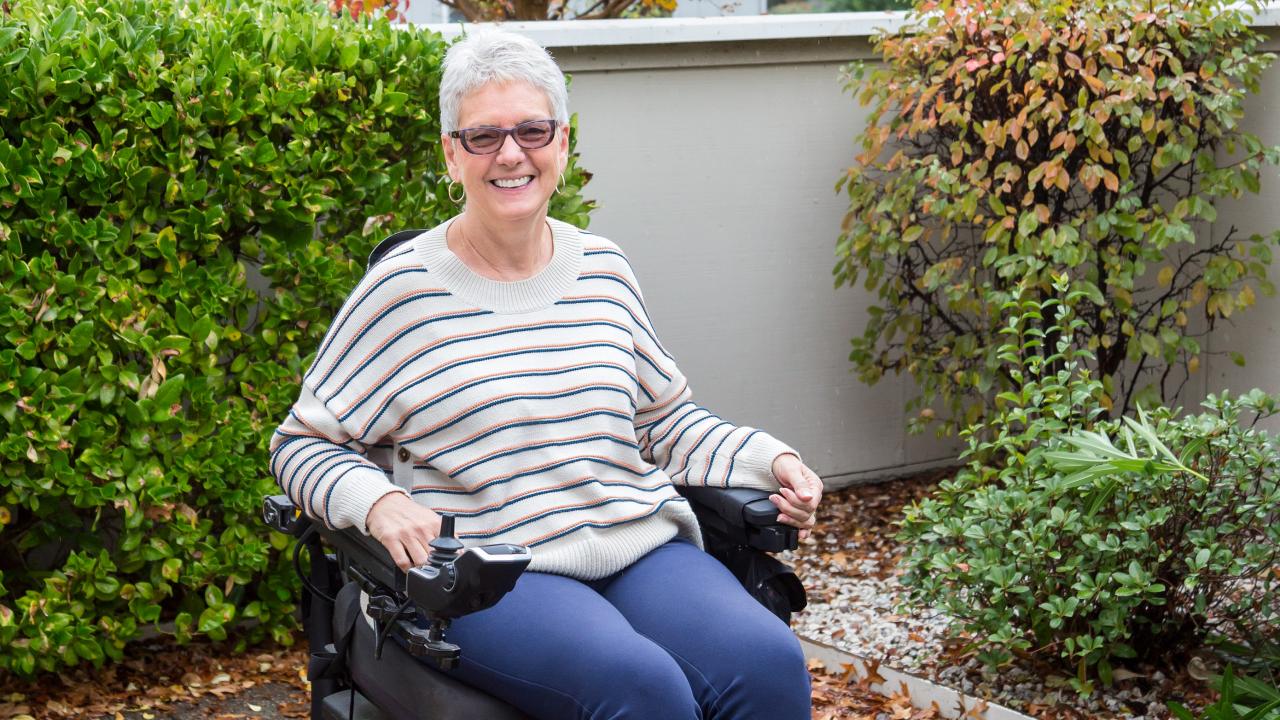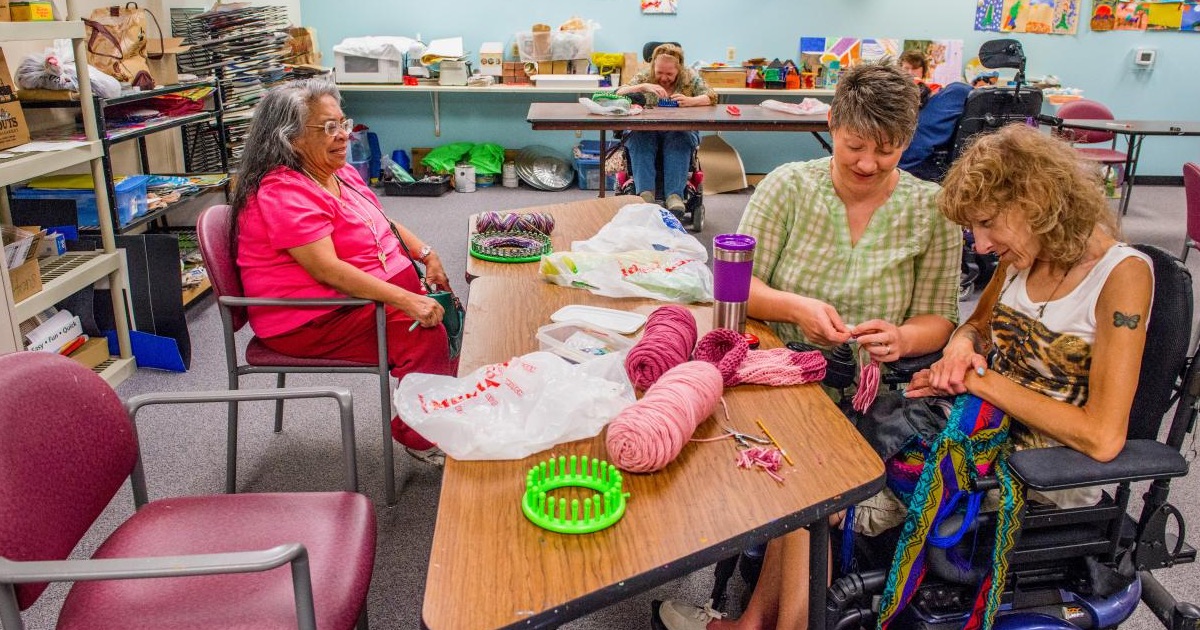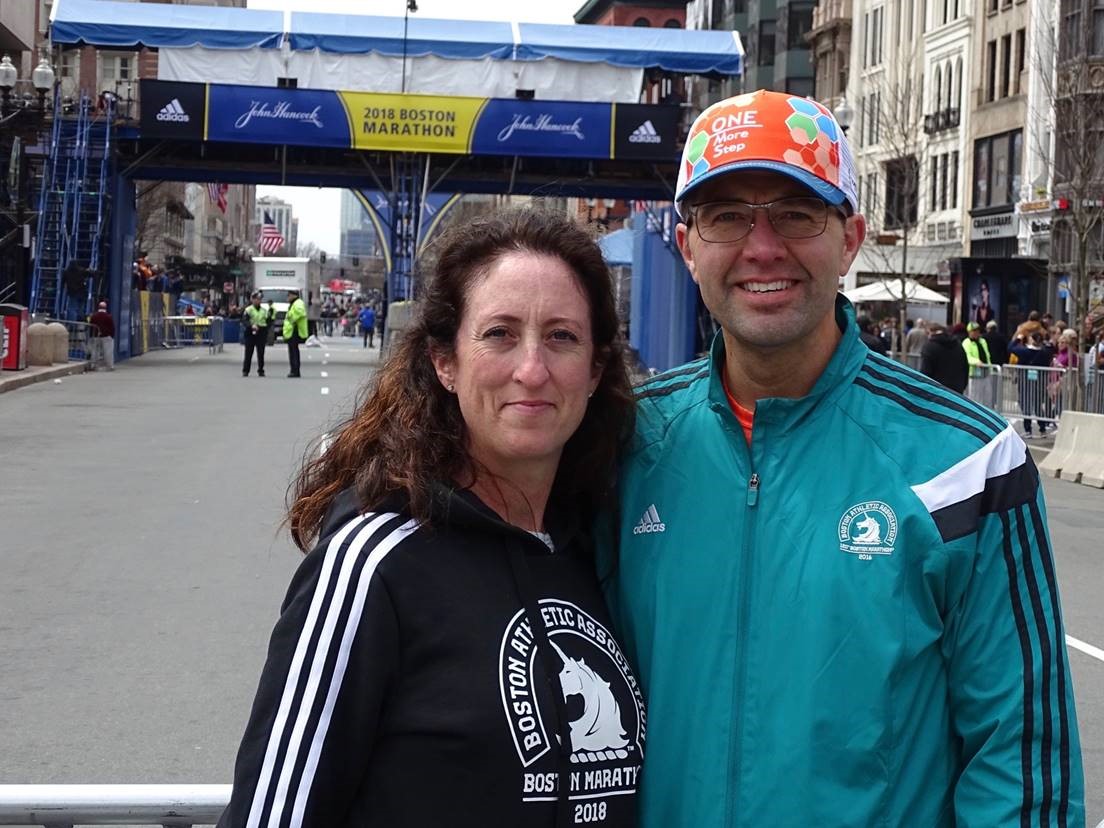 Photo via Jonathan Clark
Photo via Jonathan Clark
Jeanne Allen has lived with multiple sclerosis (MS) for more than 30 years and is passionate about traveling. She hasn’t let her motorized wheelchair deter her or slow her down, and she doesn’t want mobility challenges to stand in the way of anyone else with the travel bug either.
In 2014, Jeanne was planning a trip and was surprised by how difficult it was to find reliable information about accessibility.
“After spending hours scouring the web and making countless phone calls for anything I could find about traveling with a wheelchair, I realized I was compiling valuable information that could help others. From there, I started my blog – http://incredibleaccessible.com/ – to share all the insights, discoveries and tips I’ve learned from traveling, first in my own backyard of Sonoma, Calif. and, more recently, around the world.”
Jeanne connected with EmpowHER to share some of her top tips for traveling with limited mobility.
Ask questions.
Businesses are finally starting to talk more openly about accessibility, but just because venues and hotels are supposed to be “accessible,” this doesn’t mean the same thing for everyone.A location can deem itself accessible for those with limited mobility, but it depends on a person’s specific needs. It is important to talk to these places directly to find out what they mean by “accessible.”
Depending on one’s disability, Jeanne suggests thinking through necessary questions. Those with canes, for example, may want to find out about the number of stairs in a venue and/or if there are handrails. For those in a wheelchair or motorized scooter, the questions may be about whether there is van/wheelchair accessible parking, if there are roll-in showers or if toilets have grab bars.
Plan as far in advance as you can.
As Jeanne started to examine accessibility and build her blog, the importance of reaching out to destinations in advance became apparent.“I’ve learned it can be a challenge to find available hotel rooms that meet the needs of someone with limited mobility. In many cases, there is only one room with a roll-in shower, so availability can be unpredictable – if that room is already booked, then it’s not yours.”
Take the right equipment.
If you're travelling, you might need different mobility equipment than you have at home. For example, you might use a walker or a cane at home, but if you're traveling, you're likely covering longer distances and don’t want to exhaust yourself. With that in mind, you might want to rent a travel scooter that breaks down and can go into the trunk of a taxi or rental car.
Making sure you have the right equipment can make the difference between an exhausting vacation and a successful one.
Allow plenty of time.
Travelers need to be aware that everything can take longer when you have limited mobility, especially during busy seasons.
“Because I can no longer walk through the security station at an airport, I often have to wait 10 minutes or more for a female assist, and then I still have to go through a pat-down. It can sometimes take up to 30 minutes to get through security once I get to the front of the line.”
Don’t assume things aren’t accessible.
According to Jeanne, many people mistakenly believe there are things they’ll never be able to do, but she says there is no way to know until you investigate and try.
“I was a downhill skier when I was younger, and I really missed the sport after I started having mobility issues. I started to look around for other options, and it turns out there is a way to ‘chair ski’ while tethered to an instructor. It’s called adaptable skiing – it was amazing,” said Jeanne. “Don’t ever assume you can’t do something – there’s often a way to make adaptations to continue to do what you love.”
Be prepared to ROLL with it!
When traveling with limited mobility, it is important to have the right attitude.
“Things are going to be different than you expected, so plan, but be flexible. Allow yourself to be spontaneous and have fun,” said Jeanne.
When Jeanne and her husband traveled to Europe recently, they ended up spending an extra night in Portugal and missed a night in another destination because the train they planned to take lacked an adequate ramp. She and her husband made the best of the time and then found alternative transportation to their next stop.
Jeanne adds that nothing is insurmountable. “There might be some stressful moments, but once you overcome the obstacle, you’re proud of yourself, and it’s worth it.”
Know that even with a disability, you can explore.
Even with limited mobility, it is possible to get out and have fun, visit new places and have great adventures.
“If you want to travel – and you should because it’s fabulous – don't be afraid,” advised Jeanne. “It is very feasible these days to travel with limited mobility, not only in the United States but around the world. There's so much accessibility if you plan ahead, anticipate your needs and just get out there. By sharing my adventures on my blog, I hope to inspire others with limited mobility to go places they weren’t sure they could go, and do things they weren’t sure they could do. Everyone deserves to experience the incredible and accessible destinations out there!”
Read more in Living with Multiple Sclerosis


.png)
